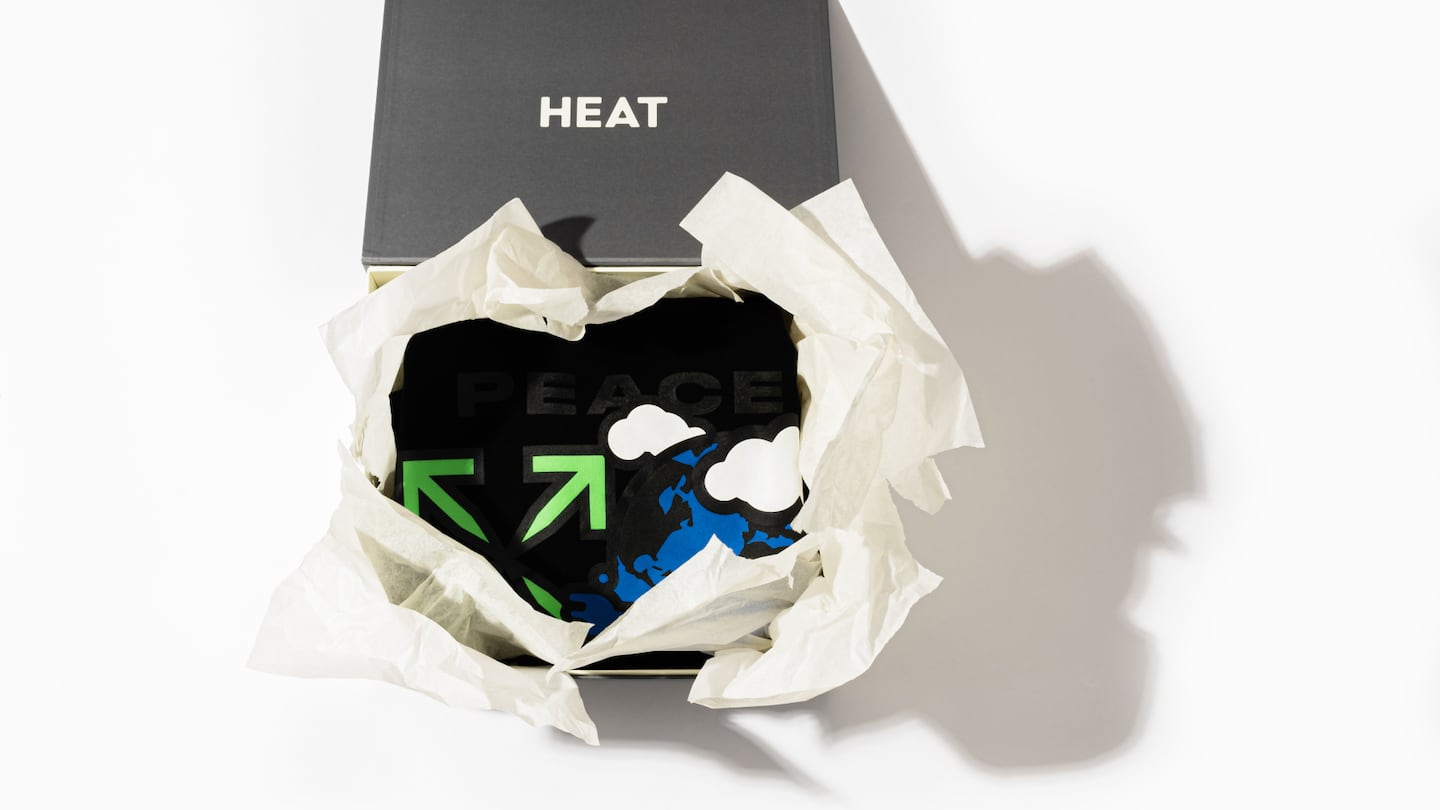
The Business of Fashion
Agenda-setting intelligence, analysis and advice for the global fashion community.

Agenda-setting intelligence, analysis and advice for the global fashion community.

LVMH ranks as one of fashion’s most powerful tastemakers. Now, it’s eyeing the rising trend of luxury mystery boxes, a high-fashion form of lucky dip that has captured a powerful fanbase of Gen-Z hypebeasts.
The luxury giant’s venture arm has invested in Heat, a UK-based mystery box start-up, as part of its $5 million seed funding round. The funding round was led by venture-capital fund Antler, with other investors including OTB Group director Stefano Rosso; Michael Mitterlehner, a partner at private-equity fund L Catterton; and Spotify’s director of global growth Sven Ahrens, Heat said Thursday.
Mystery boxes work like this: shoppers pay a set price to receive a surprise selection of products, often with a higher actual retail value. They were first popularised in the beauty industry in the early 2010s as a way to drive hype, introduce new consumers to new products and offload excess inventory. They’ve gained traction in the last few years, buoyed by the rise of resale and social commerce that made consumers more open to shelling out for unknown items.
The pandemic accelerated those trends in ways that created fertile soil for new entrants focused on the luxury sector. On the business side, discount-averse luxury labels found themselves with shuttered stores and mounting inventory levels. Meanwhile, consumers turned online to shop and find entertainment, with crossover content like unboxing videos able to rack up views in the millions.
ADVERTISEMENT
In China, where mystery boxes are already a popular retail strategy, JD.com reported 600 percent year-on-year growth in their sales during last year’s 618 shopping festival. Meanwhile, YouTubers like American Harrison Nevel have racked up millions of followers with unboxing videos. Such is the demand for Nevel’s content — in which he unpackages, displays and reviews the products inside the boxes without having seen them before — that he claims he spent more than $400,000 on mystery boxes in 2020.
“[Mystery boxes] are part of a broader phenomenon that we’re seeing. It’s a collapsing together of retail, commerce and entertainment,” said retail and consumer behaviour analyst Doug Stephens. “It’s this notion of creating urgency on the part of consumers to take part in something that is ephemeral, limited in time and quantity.”
Heat is among a flurry of start-ups that have piled into the space, hoping to tap into Gen-Z shoppers’ appetite for social shopping, newness and the appeal of an unboxing surprise. Its boxes come at two price points: £299 ($399) and £500, with guaranteed minimum resale values of £550 and £950 respectively. If a customer doesn’t like a Balenciaga hoodie they received in a box, they are able to resell it, potentially recouping the initial outlay on the entire box.
Brands are looking to build their own offerings, too. During last year’s Black Friday sales, Italian streetwear brand GCDS sold a series of themed mystery boxes, while Milan-based contemporary label Sunnei launched a similar offering, with packages containing a mixture of ready-to-wear pieces.
Heat has focused on building partnerships to secure brands that appeal to its consumer base of young trend-conscious shoppers. It’s struck deals with retailers like Selfridges, Harrods and Browns to buy up unsold inventory before markdown periods, and persuaded over 60 labels, including Loewe, Maison Margiela and Amiri, that partnering on mystery boxes is a powerful customer-acquisition tool.
“Gen-Z audiences will one day be luxury brands’ highest-spending consumer group... so for Heat to introduce their products to young customers in a way that’s engaging and interactive can be a very valuable solution,” said co-founder and chief merchandising officer Mario Maher.
For LVMH, the company’s appeal lay in its marriage of price accessibility, desirability and circularity, head of LVMH Luxury Ventures Julie Bercovy said in an emailed statement. “The loyalty and enthusiasm of the Heat community demonstrates the relevance of this approach,” she said.
To date, Heat said it has sold over 20,000 boxes, containing products from brands including luxury staples Saint Laurent and Celine; streetwear labels Off-White, Palm Angels and Heron Preston; and emerging names like American knitwear brand Judy Turner and London-based menswear label Bianca Saunders.
ADVERTISEMENT
The company has largely grown organically, building a network of 630,000 Instagram followers and 112,000 followers on TikTok, thanks to word-of-mouth and viral unboxing videos.
Heat’s seed funding round is intended to fuel growth and bolster its positioning with powerful luxury backers. The company also plans to set up distribution hubs in the EU and America, in addition to its current facilities in Sheffield and Milan.
The company is working on new hires, including a chief financial officer and in-house customer service and tech teams. Joe Wilkinson, Heat’s other founder and its chief executive, expects full-time staff to grow from 15 to 40 employees by the second quarter of 2022. Expansion into new regions like China will be considered “a few funding rounds down the line,” he said.
Heat is also planning to invest in its newly established e-commerce platform, pointing to growth ambitions beyond the mystery box market.
“Mystery boxes are central to our business model — we were there right at the beginning and we feel we have a stronghold in this space,” Wilkinson said. But they are just an entry point, and Heat wants to hold on to and benefit from consumers “who may have got their first-ever piece of a certain label in one of our mystery boxes,” he said.
Disclosure: LVMH is part of a group of investors who, together, hold a minority interest in The Business of Fashion. All investors have signed shareholders’ documentation guaranteeing BoF’s complete editorial independence.
Venture capital syndicates and online communities with young investors are changing the landscape for brands and founders.
Inspired by a traditional Japanese custom, popular beauty brands like Colourpop, Tatcha and Charlotte Tilbury are selling mysterious ‘lucky bags’ filled with products. But are shoppers being duped?
Consumers will reallocate wallet share across fashion categories as pent-up demand for newness intersects with more social freedoms. Companies should prepare for this shift by honing data-driven product development and adjusting their inventory mix.

Daniel-Yaw Miller is Senior Editorial Associate at The Business of Fashion. He is based in London and covers menswear, streetwear and sport.
Brands from Valentino to Prada and start-ups like Pulco Studios are vying to cash in on the racket sport’s aspirational aesthetic and affluent fanbase.
The fashion giant has been working with advisers to study possibilities for the Marc Jacobs brand after being approached by suitors.
A runway show at corporate headquarters underscored how the brand’s nearly decade-long quest to elevate its image — and prices — is finally paying off.
Mining company Anglo American is considering offloading its storied diamond unit. It won’t be an easy sell.